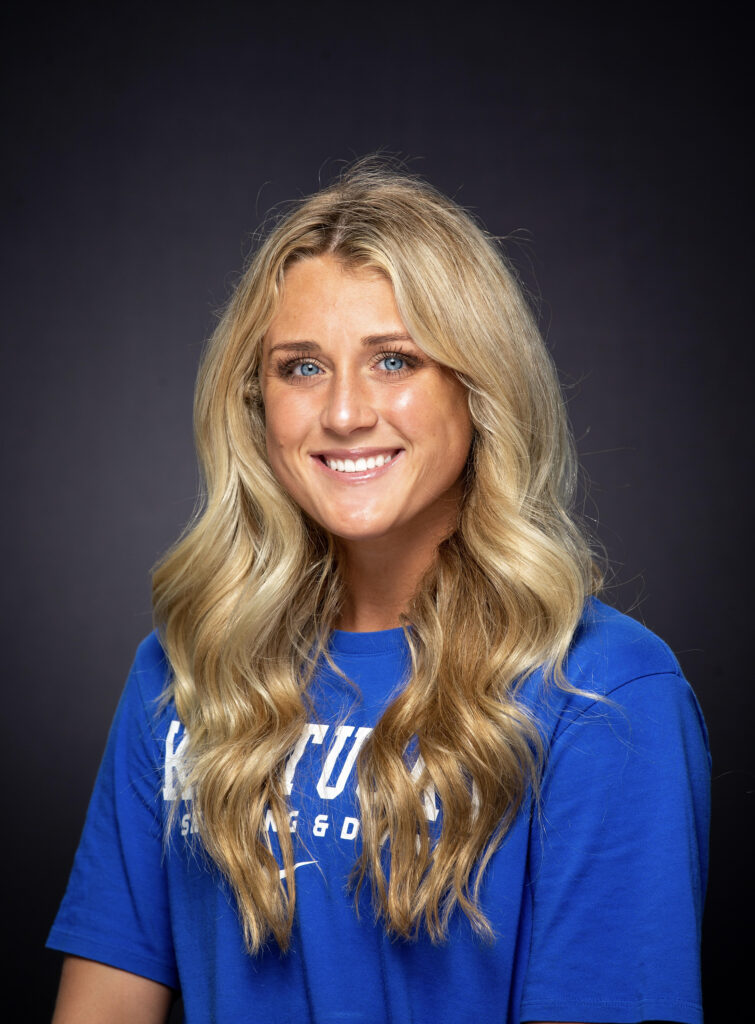ADRIAN — Adrian College announced in March that former collegiate swimmer Riley Gaines will be its 2024 commencement speaker, a move that has sparked controversy and debate from students, alumni and community members.
After tying for fifth with a transgender woman, Lia Thomas, during the 200-yard NCAA freestyle championship in 2022, Gaines began campaigning against the inclusion of transgender women in the women’s division of sports. Thomas went on to win the Division I 500-yard freestyle.

Gaines’ statements have gone beyond criticizing athletic accommodations for transgender women. At a fundraiser for Iowa Gov. Kim Reynolds in 2023, Gaines referred to her efforts as “spiritual warfare” and said that “this really is about moral versus evil.” According to the Des Moines Register, she repeatedly referred to Thomas as a man and argued that transgender identities aren’t real, saying “there is just man and woman, and God created them.”
She has also criticized allowing transgender women to compete in women’s chess tournaments.
In a statement announcing Gaines’ address, Adrian College president Jeffrey Docking said: “This is an important issue that should be discussed at colleges and universities throughout the United States. Adrian College has never shied away from presenting and debating substantive disagreements on campus. In fact, this is precisely the purpose of universities — to engage in civil discourse of controversial issues. We welcome Riley Gaines to our beautiful campus, and we feel confident our students will be inspired by her commencement address.”
In the announcement, vice president and dean of academic affairs Andrea Milner said, “We look forward to providing Riley a welcoming atmosphere. I’m excited to offer our graduates the opportunity to broaden their understanding of world issues and inspire them as they embark on their future endeavors.”
R. Cole Bouck, an Adrian College alumnus who created a scholarship for students who advocate for the LGBTQ+ community, visited campus shortly after the announcement. In an interview with the Lenawee Voice, he said a “one-way pipeline” like a commencement address doesn’t constitute discourse and debate.
“An exchange of ideas means, to me, that you have opposing parties, or parties with differing opinions in an area, and you talk about your differences,” he said. “You explain why you believe what you believe, and they explain why they believe what they believe. And you don’t come to agreement necessarily, but you get some sense of why the other people feel the way they do. … Exchange means between parties. It means that we’re both discussing this. You’re hearing from me, I’m hearing from you. This is not that. This is a single pipeline of whatever she spews out.”
Bouck said the students he has spoken with pointed out that they graduated from high school in 2020, meaning they’ve never had a normal commencement, and they feel the college’s choice is denying them that normal experience again. All the graduates worked hard and they all paid tuition, he said, but “only some of them will be shamed and demeaned” by the college’s choice of speaker for their graduation.
The student group AC Safe Place started a change.org petition asking the college to disinvite Gaines as the commencement speaker.
“We must create an environment where everyone feels respected and valued, especially during such significant moments as graduation,” the authors of the petition wrote. They said said the decision risks alienating LGBTQ+ students and creating an environment that doesn’t respect them.
“Let us ensure our graduation is a celebration that respects all students’ identities and values inclusivity above all else,” they wrote.
Adrian city commissioner Bob Behnke also addressed the decision at a recent commission meeting, saying the college decided to “turn graduation into a lightning rod of division instead of a torch for unity.”
He said he wants to tell college students, “Welcome to Adrian. You are valued and accepted and wanted as a member of our community, even though you may hear others say the opposite.”
A representative of the Adrian College office of marketing and public relations said the college does not have any further comment at this time.
The NCAA requires transgender women who compete in women’s sports to be undergoing hormone therapy to reduce testosterone levels. The maximum levels allowed to compete vary by sport.
Estimates of how many transgender women are competing in NCAA women’s sports vary, but most estimates say the number is 50 or less. According to the NCAA, more than 500,000 athletes compete in collegiate sports in the U.S., with women’s divisions making up more than 200,000 of that number.
The NCAA covers about 1,100 colleges and universities in the United States.

